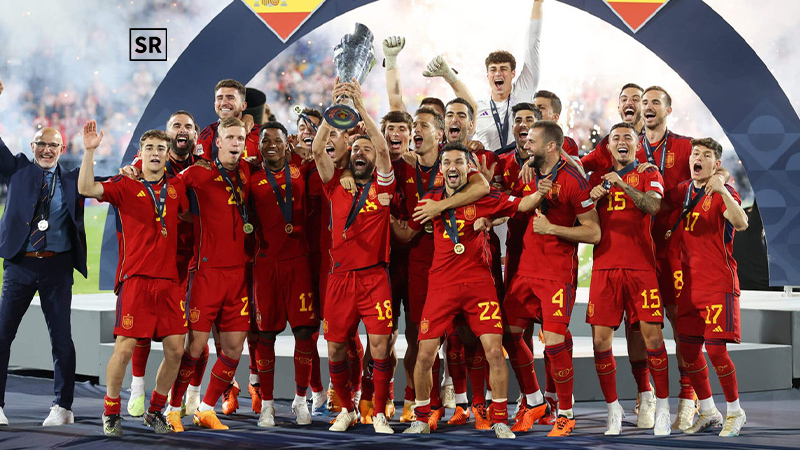
UEFA Nations League is a football tournament for European national teams, created by UEFA in 2018. It replaces most friendly matches with competitive games and is held every two years. Teams are divided into leagues based on their rankings, and they can move up or down depending on their performance. The top teams compete for the Nations League title in the finals.
The fifth UEFA Nations League finals will take place in 2026. This tournament was created to reduce the number of meaningless friendly matches and give European national teams more competitive games against others of similar skill levels. All European football associations take part in the competition, which is set up like a league with promotion and relegation.
In the first edition, teams were divided into four leagues: League A and B each had 12 teams, League C had 14, and League D had 16. Each league was split into four groups, with each group having three or four teams. Teams played each other at home and away. The winners of the four groups in League A moved on to the Nations League finals, hosted by one of the four, and included semi-finals, a third-place match, and the final.
After the first season, the format was adjusted. Leagues A, B, and C were expanded to 16 teams each, while League D was reduced to just seven teams divided into two groups. The top teams in Leagues B, C, and D were promoted, while the teams finishing last in Leagues A and B were relegated. In League C, two teams were relegated to League D through special play-out matches involving the four bottom teams. The finals format stayed the same, keeping the exciting knockout stage to decide the winner.
RECOMMENDED FOR YOU

Metro Bank Share Price Prediction (2025–2030): Expert Analysis & Predictions
Kailee Rainse
Apr 8, 2025

Travis Perkins Share Price Prediction 2025, 2026 to 2030 – Expert Analysis
Team SR
Sep 17, 2025
History of Nations League Finals
The UEFA Nations League Finals began in 2019 as the final stage of the Nations League tournament. Held every two years, it features the four group winners from League A competing in semi-finals, a third-place match, and a final. The first winner was Portugal in 2019, followed by France in 2021, and Spain in 2023. The finals give top European teams a chance to win a new international title while replacing less meaningful friendlies with competitive matches.
Here's a quick look at the history of the Nations League Finals and the teams that have won this important title.
UEFA Nations League winners and runner-ups Season Champion Final Score Runners-Up 2024-25 Portugal 2-2 (5-3 on penalties) Spain 2022–23 Spain 0–0 (5–4 pens) Croatia 2020–21 France 2–1 Spain 2018–19 Portugal 1–0 Netherlands
How are EURO and World Cup qualifying linked to the Nations League?
The UEFA Nations League is also connected to qualifying for big tournaments like the EURO and the FIFA World Cup. It gives teams another chance to make it to these finals, even if they don’t do well in regular qualifying.
In the 2018/19 Nations League, four places at UEFA EURO 2020 were decided through play-offs. Sixteen teams that didn’t qualify through regular matches were picked based on how they performed in the Nations League. These teams were split into four groups (called “paths”), and the winner from each group got a spot at EURO 2020.
In the 2020/21 season, the Nations League helped decide three places for the FIFA World Cup. The two best group winners from the Nations League—who didn’t finish in the top two of their regular World Cup qualifying groups—joined ten runners-up in the play-offs. These 12 teams were divided into three groups of four. Each group had two semi-finals and a final to decide who qualified.
For UEFA EURO 2024, three of the 24 spots were also given through play-offs. Twelve teams were chosen based on how they did in the 2022/23 Nations League. These were mainly the group winners from Leagues A, B, and C. If a group winner had already qualified through the regular route, the next best team from that league took their place. If there weren’t enough teams from that league, the spot went to teams from the next league down.
Conclusion
The UEFA Nations League has changed the way European national teams compete by replacing most friendly matches with exciting, meaningful games. It gives teams of all levels a chance to improve, compete for promotion, and even earn a place in major tournaments like the EURO and World Cup. With its league format, finals, and connection to qualification paths, the Nations League has become an important and successful part of international football in Europe.


 Follow us
Follow us Follow us
Follow us













